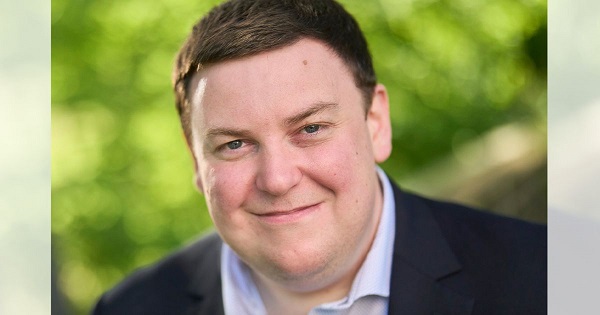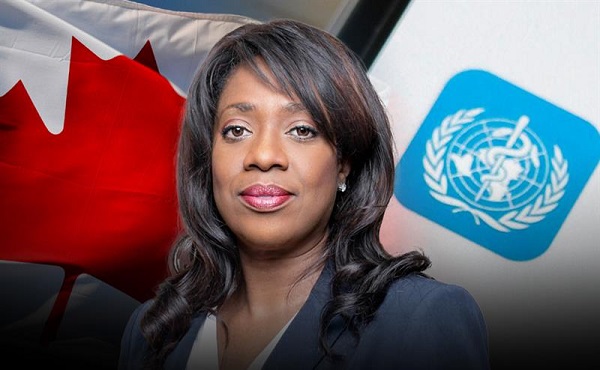Health
Pierre Poilievre praises MP for speaking out against euthanasia for mentally ill

From LifeSiteNews
MP Andrew Lawton, who almost died by suicide 15 years ago, launched an initiative to help those with mental illness choose life and to stop the expansion of euthanasia to the mentally ill.
Pierre Poilievre, leader of Canada’s Conservative Party praised one of his newest pro-life MPs, Andrew Lawton, for telling his story about almost dying by suicide, and for raising awareness of a bill that seeks to stop euthanasia from being expanded to those with mental illness.
“I want to thank Andrew for bravely coming forward to tell his story to try and help others suffering with their mental health,” wrote Poilievre on X last week.
Poilievre then thanked another one of his MPs, Tamara Jansen, for “leading the effort with Bill C-218 to protect these people and get them proper health care and treatment, not assisted suicide.”
As reported by LifeSiteNews, Conservative MP Lawton, who almost died in a suicide attempt 15 years ago, recently launched an initiative to help those struggling with mental illness choose life and to help stop a plan by the Canadian government to expand euthanasia to those with mental illness.
The Private Members Bill, C-218, or “An Act to amend the Criminal Code (medical assistance in dying [i.e., euthanasia]),” was introduced by Jansen and passed its first reading on June 20, 2025.
LifeSiteNews reported on Bill C-218, noting that Jansen said allowing “medical assistance in dying” (MAID) – a euphemism for assisted suicide – for those with mental illness is “not healthcare, that’s not compassion, it’s abandonment.”
“Mental illness is treatable. Recovery is possible, but only if we show up and help,” she told fellow MPs.
Jansen’s Bill C-218 reads, “This enactment amends the Criminal Code to provide that a mental disorder is not a grievous and irremediable medical condition for which a person could receive medical assistance in dying.”
The Conservative Party has attempted to oppose the expansion of euthanasia for some time, but recent legislative attempts to stop the expansion outright, instead of just delaying it, such as through Bill C-314, have failed.
Assisted suicide was legalized by the Liberal government of former Prime Minister Justin Trudeau in 2016.
Under the current law, assisted suicide is prohibited for minors and the mentally ill. Activists, however, have been pushing for these expansions with varying degrees of success.
In 2021, the Trudeau government expanded euthanasia from killing only “terminally ill” patients to allowing the chronically ill to qualify after the passage of Bill C-7. Since then, the government has sought to include those suffering solely from mental illness.
In February 2024, after pushback from pro-life, medical, and mental health groups as well as most of Canada’s provinces, the federal government delayed the mental illness expansion until 2027.
The expansion of euthanasia for the mentally ill is slated to become law in 2027 due to the passage of Bill C-7.
Health
Leslyn Lewis urges Canadians to fight WHO pandemic treaty before it’s legally binding

From LifeSiteNews
Conservative MP Leslyn Lewis is urging Canadians to demand a parliamentary debate on the WHO Pandemic Agreement, highlighting risks to national sovereignty.
Conservative Member of Parliament (MP) Leslyn Lewis called on Canadians to petition against the World Health Organization’s (WHO) pandemic treaty before it becomes legally binding.
In an October 23 post on X, Lewis encouraged Canadians to demand that politicians debate the WHO Pandemic Agreement before it becomes law after warnings that the treaty could undermine national freedom and lead to global surveillance.
“I have raised red flags about its implications on Canada’s health sovereignty and the federal government’s willingness to enter a legally binding treaty of this weight without any input from Parliament,” she declared.
In May, Canada, under Liberal Prime Minister Mark Carney, adopted the treaty despite warnings that the agreement gives the globalist entity increased power in the event of another “pandemic.”
However, Lewis revealed that since the agreement has yet to be officially signed, Canada is not bound to it and can still make amendments.
“We are now in a critical window of opportunity to ask tough questions and debate the treaty before it is signed by the Minister of Foreign Affairs and binds our nation,” she explained.
Lewis encouraged Canadians to sign a petition calling for a debate of the agreement as well as contacting their local MPs to request a parliamentary review of the treaty.
Lewis revealed that Canadians’ persistent opposition to the treaty has already resulted in some of the more dangerous clauses, including restricting free speech, freedom of movement, and government surveillance, being removed from the final agreement.
“Thanks to the engagement of countless Canadians and concerned citizens around the world, the most extreme provisions in the WHO Pandemic Treaty were removed — these measures would have undermined national healthcare sovereignty and given international bureaucrats sweeping powers,” Lewis declared.
“The removal of provisions on vaccine mandates, misinformation and disinformation, censorship requirements, travel restrictions, global surveillance, and mandatory health measures happened because people paid attention and spoke up,” she continued.
Among the most criticized parts of the agreement is the affirmation that “the World Health Organization is the directing and coordinating authority on international health work, including on pandemic prevention, preparedness and response.”
While the agreement claims to uphold “the principle of the sovereignty of States in addressing public health matters,” it also calls for a globally unified response in the event of a pandemic, stating plainly that “(t)he Parties shall promote a One Health approach for pandemic prevention, preparedness and response.”
Business
Bill Gates walks away from the climate cult

Billionaire Bill Gates — long one of the loudest voices warning of climate catastrophe — now says the world has bigger problems to worry about. In a 17-page memo released Tuesday, the Microsoft co-founder called for a “strategic pivot” away from the obsessive focus on reducing global temperatures, urging leaders instead to prioritize fighting poverty and eradicating disease in the developing world. “Climate change is a serious problem, but it’s not the end of humanity,” Gates wrote.
Gates, 70, argued that global leaders have lost perspective by treating climate change as an existential crisis while millions continue to suffer from preventable diseases like malaria. “If I had to choose between eradicating malaria and preventing a tenth of a degree of warming, I’d let the temperature go up 0.1 degree,” he told reporters ahead of next month’s U.N. climate conference in Brazil. “People don’t understand the suffering that exists today.”
For decades, Gates has positioned himself as a leading advocate for global climate initiatives, investing billions in green energy projects and warning of the dangers of rising emissions. Yet his latest comments mark a striking reversal — and a rare admission that the world’s climate panic may have gone too far. “If you think climate is not important, you won’t agree with the memo,” Gates told journalists. “If you think climate is the only cause and apocalyptic, you won’t agree with the memo. It’s a pragmatic view from someone trying to maximize the money and innovation that helps poor countries.”
The billionaire’s change in tone is sure to raise eyebrows ahead of the U.N. conference, where climate activists plan to push for new emissions targets and wealth transfers from developed nations. Critics have long accused Gates and other elites of hypocrisy for lecturing the public about fossil fuels while traveling the globe on private jets. Now, Gates himself appears to be distancing from the doomsday rhetoric he once helped spread, effectively admitting that humanity faces more immediate moral imperatives than the weather.
(AP Photo/Alex Brandon)
Stunning Climate Change pivot from Bill Gates. Poverty and disease should be top concern.
-

 Agriculture2 days ago
Agriculture2 days agoCloned foods are coming to a grocer near you
-

 Business1 day ago
Business1 day agoYou Won’t Believe What Canada’s Embassy in Brazil Has Been Up To
-

 Censorship Industrial Complex24 hours ago
Censorship Industrial Complex24 hours agoSenate Grills Meta and Google Over Biden Administration’s Role in COVID-Era Content Censorship
-

 Business22 hours ago
Business22 hours agoMystery cloaks Doug Ford’s funding of media through Ontario advertising subsidy
-

 Automotive1 day ago
Automotive1 day agoCarney’s Budget Risks Another Costly EV Bet
-

 Crime11 hours ago
Crime11 hours agoPublic Execution of Anti-Cartel Mayor in Michoacán Prompts U.S. Offer to Intervene Against Cartels
-

 International10 hours ago
International10 hours agoNigeria better stop killing Christians — or America’s coming “guns-a-blazing”
-

 Environment18 hours ago
Environment18 hours agoThe era of Climate Change Alarmism is over










